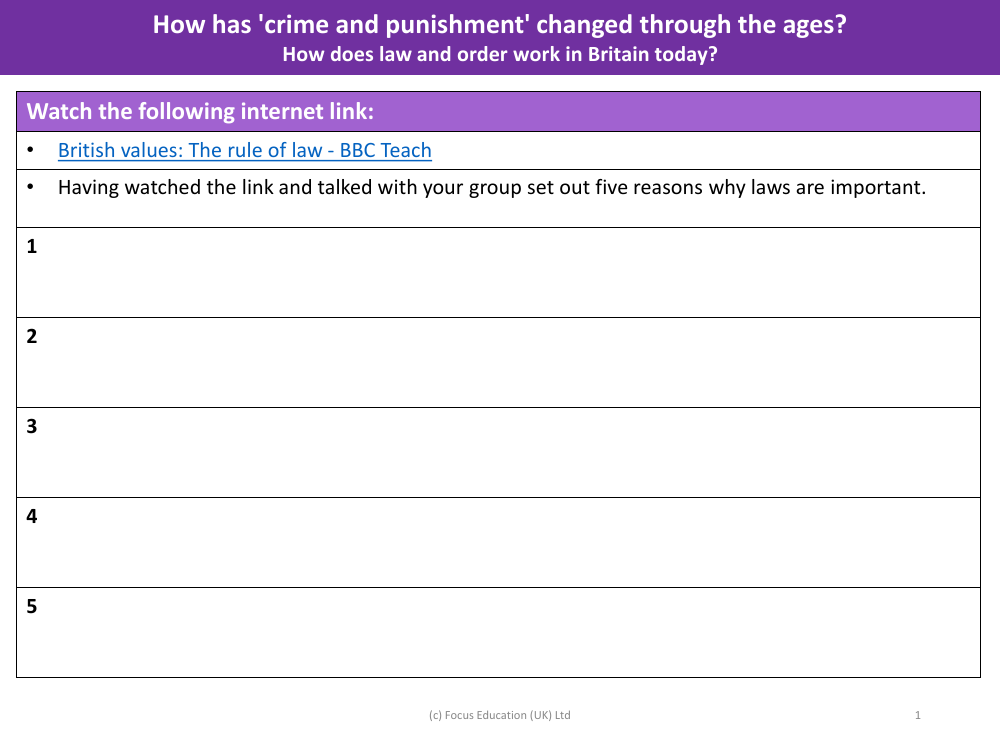How does law and order work in Britain today? - Worksheet

History Resource Description
In Britain today, law and order are upheld by a complex system that is rooted in the principle of the rule of law, a fundamental British value. This principle ensures that everyone is subject to the law, including lawmakers and enforcers. Laws are important for a variety of reasons, and students are encouraged to watch a BBC Teach video and discuss in groups to identify five key reasons. These reasons might include maintaining social order, protecting individuals and property, resolving disputes, providing a framework for justice, and ensuring fairness and equality for all citizens.
Over the centuries, the concepts of 'crime and punishment' have evolved significantly. The modern British legal system is characterised by a clear separation of powers, with independent judiciary and law enforcement bodies. Today, law and order are maintained through a combination of police forces, who enforce the laws; courts, which interpret and apply the law; and the penal system, which manages punishment and rehabilitation. The system is designed to be transparent, accessible, and to protect the rights of individuals, while also serving the interests of the wider community.






